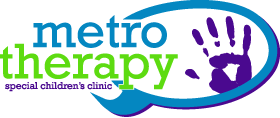Differences Between Children’s Speech and Language Therapies
Does your child struggle to make certain sounds, form sentences, or understand directions? Do they have trouble answering questions or stutter when they speak? If so, your child may benefit from speech therapy, language therapy, or a combination of both. While some people may use these terms interchangeably, they actually refer to two different entities. Understanding the differences between speech and language will help you better understand your child’s struggles and how to help them.
What Is Speech Therapy?
Speech therapy is a type of treatment that helps people who have difficulty with the physical act of speaking. Speech refers to the physical process of using the brain, respiratory system, voice, and mouth to create sounds that form words. There are many things that can make it hard for children to speak and form sounds, such as:
Developmental delays
Genetic conditions
Cleft lip or palate
Brain injury
Neurological conditions
The goal of speech therapy is to improve your child’s ability to form the sounds they need to say words properly, with enough volume and proper fluency. Speech-language pathologists can also help nonspeaking children learn to communicate their ideas using specialized technology, sign language, and other alternative methods.
What Is Language Therapy?
Language therapy focuses on improving communication skills for people of all ages who experience difficulty with expressing their ideas and understanding others. Whereas speech therapy is focused on the physical act of speaking, language refers to the system of symbols (words, signs, and gestures) we use to convey meaning.
The goal of language therapy is to help children improve their ability to communicate effectively with others. This means it helps children learn how to share their own ideas, understand what others are saying, answer questions, and follow directions. It can involve a variety of techniques, such as targeting grammar, pragmatics, and vocabulary. Through language therapy, children can build their confidence and skills in expressing themselves and connecting with others.
What Is the Difference Between Speech and Language?
If you’re still confused about the difference between speech and language, think of it this way: a piano can make different sounds when you press the keys. This is just like speech because your voice can make different sounds when you know how to hold your lips and tongue, breathe properly, and so on.
But to make music with a piano, you have to know what order to press the piano keys in, and why, and for how long. You have to be able to take your idea of what the music sounds like in your head, or on a sheet of music, and press the piano keys the right way to create the song. If you don’t know how to do that, you won’t be able to make music on the piano. This is just like language. If you don’t know what words to use, or how to put them together, you won’t be able to share your ideas.
People can communicate using language without speaking. Examples include using sign language, reading, writing, and alternative and augmentative communication (AAC)
Children Can Have Trouble with Speech, Language, or Both
As parents, we all want our children to be able to express themselves clearly and confidently. However, some children can struggle with speech or language, which can lead to frustration and communication breakdowns.
Your child might only have trouble with speech but be very good at understanding others and communicating their own ideas. Your child might speak clearly and yet have trouble putting their thoughts into words or following directions. Or your child might struggle with both speech (making the right sounds) and language (putting those sounds together in a way that means something).
The good news is that with pediatric therapy, your child can improve their speech and language skills. This can help them gain confidence, improve their academic ability, and even make new friends.
What Is a Speech-Language Pathologist?
A speech-language pathologist (SLP) is a type of healthcare professional who specializes in diagnosing and treating communication disorders. They work with individuals across all ages and backgrounds, from children who are struggling with language development to adults who have suffered a stroke and require speech therapy.
How Can a Speech-Language Pathologist Help My Child with Their Speech and Language Skills?
Our SLPs use a variety of techniques to help children improve their speech and language skills, including:
Exercises to strengthen oral muscles
Breathing exercises
Activities and games
Reading and writing
Using descriptive language
Modeling the skill for the child to imitate
The specific techniques we use depend on your child’s current function. During the free pediatric therapy screening, we will assess your child’s speech and language skills to develop a unique treatment program that will help them reach their fullest potential.
Schedule Your Child’s Free Screening Today
As parents, we always want what is best for our children. If you are worried about your child's speech and language skills, then don't hesitate to contact Metro Therapy for a free pediatric therapy screening. Our experienced therapists specialize in helping children with speech and language difficulties. Call us at (763) 450-9400 to take advantage of this free screening and set your child up for success in the future.

